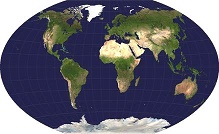Russian History Textbooks in the Putin Era: Recycling iconic heroes and casting faithful citizens
Document Type
Event
Start Date
17-10-2016 10:00 AM
Description
In this paper we examine the heroic representations of Joseph Stalin and Vladimir Putin in two recent (2016) and widely used Russian high school history textbooks. We argue that these representations aim to achieve an uncritical acceptance and allegiance to Putin’s political regime among Russian school age students. Employing a critical discourse analytic approach to the textbook representations of Stalin and Putin revealed how ideological messages were communicated to the reader through words and images. We drew upon critical theory and social semiotic perspectives to guide our analysis. The findings that emerged from this research demonstrated how the Russian concept of hero was discursively enacted in the two textbooks to accomplish socio-political purposes. While there were differences between the textbooks’ depictions of Stalin’s heroic stature, both accounts used these alternating depictions to enhance adulation of Putin’s heroic leadership in the present. Furthermore, the representations of Stalin’s crimes served to justify Putin’s policies today by portraying opposition to his leadership as unpatriotic and damaging to the welfare of the Russian nation. The significance of these findings underscores the importance of examining how the narratives of a nation’s past attempt to shape civic identities in the present. Our study also draws attention to the dangers of how officially sanctioned historical accounts in school settings around the world can be used to shape a compliant citizenry in the present.
Recommended Citation
Tsyrlina-Spady, Tatyana and Stoskopf, Alan, "Russian History Textbooks in the Putin Era: Recycling iconic heroes and casting faithful citizens" (2016). Center for Global Curriculum Studies Symposium. 11.
https://digitalcommons.spu.edu/globalcurriculumsymposium/gcs2016/gcs2016_events/11
Russian History Textbooks in the Putin Era: Recycling iconic heroes and casting faithful citizens
In this paper we examine the heroic representations of Joseph Stalin and Vladimir Putin in two recent (2016) and widely used Russian high school history textbooks. We argue that these representations aim to achieve an uncritical acceptance and allegiance to Putin’s political regime among Russian school age students. Employing a critical discourse analytic approach to the textbook representations of Stalin and Putin revealed how ideological messages were communicated to the reader through words and images. We drew upon critical theory and social semiotic perspectives to guide our analysis. The findings that emerged from this research demonstrated how the Russian concept of hero was discursively enacted in the two textbooks to accomplish socio-political purposes. While there were differences between the textbooks’ depictions of Stalin’s heroic stature, both accounts used these alternating depictions to enhance adulation of Putin’s heroic leadership in the present. Furthermore, the representations of Stalin’s crimes served to justify Putin’s policies today by portraying opposition to his leadership as unpatriotic and damaging to the welfare of the Russian nation. The significance of these findings underscores the importance of examining how the narratives of a nation’s past attempt to shape civic identities in the present. Our study also draws attention to the dangers of how officially sanctioned historical accounts in school settings around the world can be used to shape a compliant citizenry in the present.

